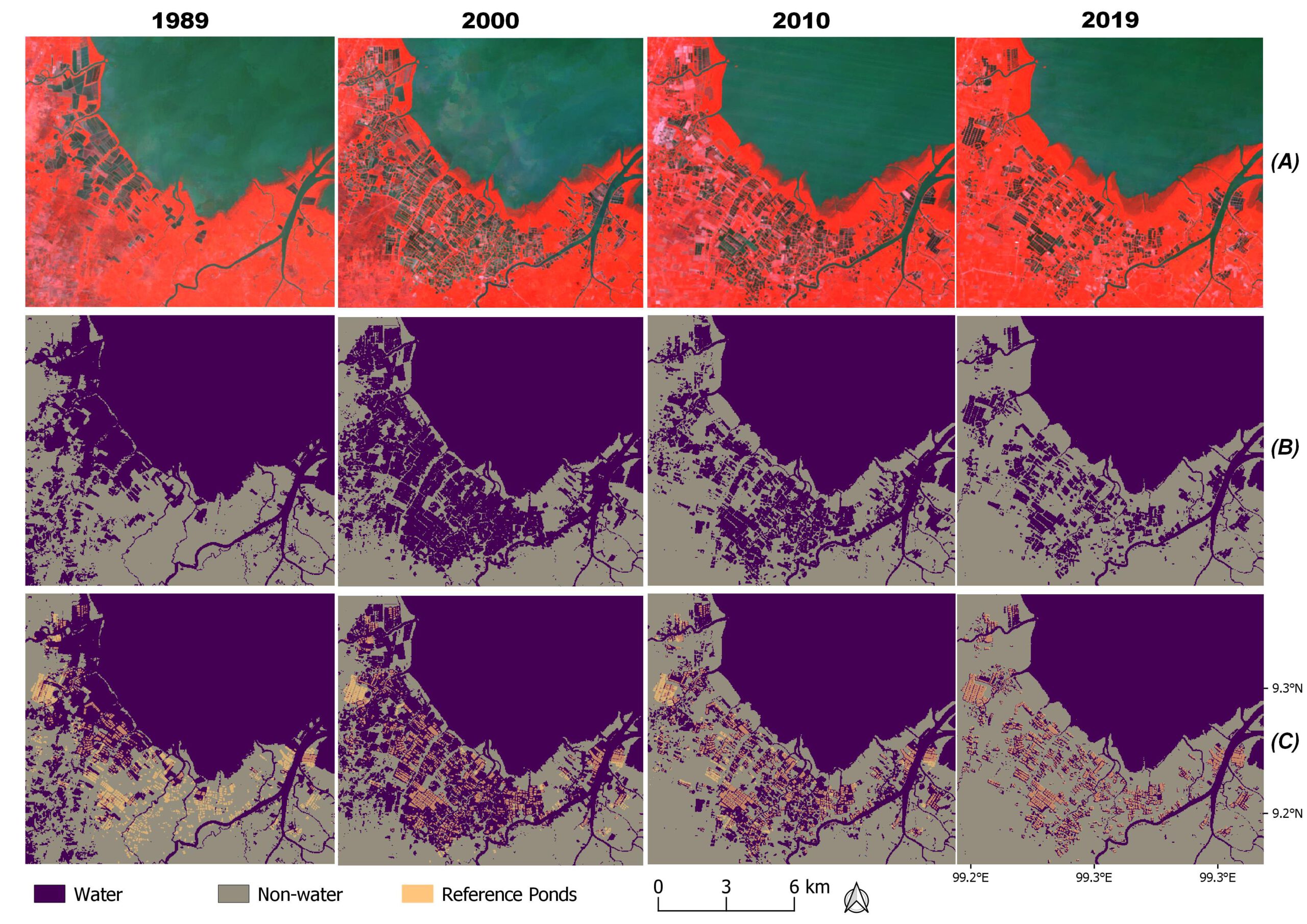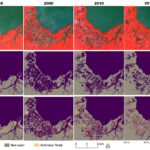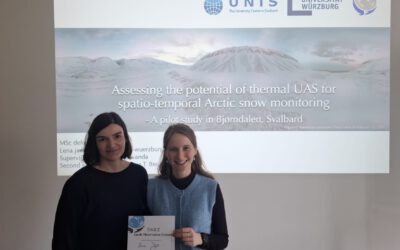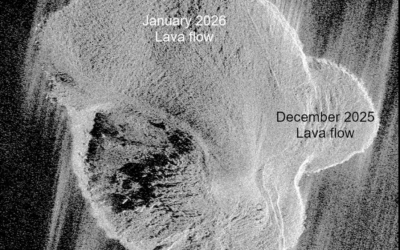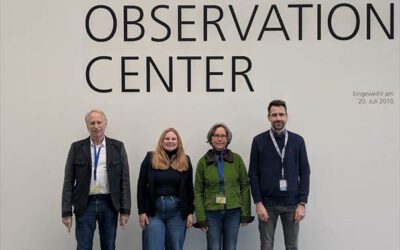On Tuesday March 21st at 10 a.m. at 12pm (room 1.003 Z6 ) Kemeng will present her M.Sc. thesis “Analysis of ice shelf front dynamics in Pine Island Bay (Antarctica) based on long-term SAR time series and deep learning”.
From the abstract: Aquaculture has become the global principal supply source of fish, crustaceans, and
mollusks for food. A thorough understanding of the interrelationships between aquaculture
systems and ecosystems is essential for the sustainable development of aquaculture.
Remote sensing-based long-term monitoring of aquaculture activities is believed
to have unique potential in unraveling the aquaculture-ecosystem nexus. This paper
presents a methodology for using Landsat-based time series to track the spatiotemporal
development of coastal onshore pond aquaculture. Based on an existing reference
data set of aquaculture ponds, this approach determines the yearly status of individual
reference ponds from 1988 to 2019 to estimate the development patterns of pond
aquaculture. The methodology is applied to five countries in Southeast Asia, namely
Vietnam, Cambodia, Thailand, Myanmar, and Malaysia. It depicts the spatiotemporal
development using three metrics: (1) extent of active reference ponds; (2) density of
active reference ponds; (3) growth rate of the extent of active reference ponds. Results
indicate that half of the reference ponds were constructed during the observation period.
At the national level, the expansion was accelerated in the 1990s in Thailand, in
the 2000s in Vietnam, in the 2000s and 2010s in Myanmar, and in the 2015s in Cambodia.
In Malaysia, the growth of ponds stayed relatively steady throughout the whole period.
At the regional level, the difference in the growth rate of farming extent tends to decline
between districts, especially in Vietnam, Thailand, and Malaysia. While some districts
had dramatic changes in terms of farming areas, most of them tended to expand at
an annual rate under 10%. Traditional hot spots for pond aquaculture production are
located in the Red River Delta, the Mekong River Delta, and the Bangkok metropolitan
region. Besides, there are arising production hot spots to be found in the coastal
region in Thailand close to Cambodia, along the eastern coast of the Malay Peninsula
of Thailand, and in the Irrawaddy Delta of Myanmar. It is also noticeable that pond
aquaculture production tends to move from the coasts toward inland areas in Thailand,
Myanmar, and Cambodia. The overall precision for the complete study area was estimated
to be 94.4%, whereas the country-specific overall accuracy was 96.5%, 93.0%,
91.9%, 87.6%, and 81.3% for Vietnam, Myanmar, Thailand, Cambodia, and Malaysia
respectively.
Supervisors: Prof. Dr. Tobias Ullmann and Dr. Marco Ottinger

